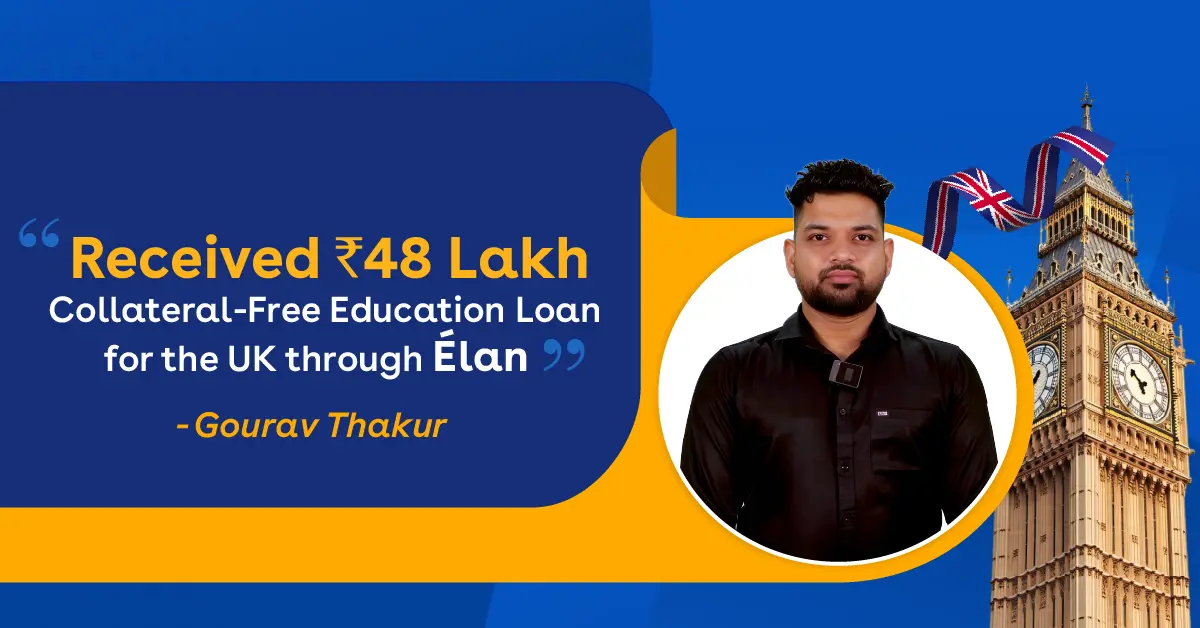Nov 09, 2024
Central Sector Interest Subsidy (CSIS) Scheme for Education Loans: A Guide
The cost of higher education be it in India or abroad has steadily increased over the years. For students from underprivileged backgrounds, this can pose a significant financial burden. Recognizing the challenges faced by deserving students and pledging to make education more accessible, the Government of India introduced the Central Sector Interest Subsidy (CSIS) Scheme in 2009. Since then, this scheme has become a go-to option among eligible scholars.
It provides much-needed relief to economically weaker students by offering an interest subsidy on education loans for higher studies. In this latest guide, we will explore the various aspects of the CSIS scheme and how eligible students can take advantage of this opportunity to fund their higher education. Read on to know more.
The Central Sector Interest Subsidy (CSIS) Scheme: An Overview
The Central Sector Interest Subsidy Scheme is a government initiative to provide interest subsidies on education loans to students from economically weaker sections (EWS) of society. It applies to loans taken under the Indian Banks' Association (IBA) Model Education Loan Scheme. The key feature of the CSIS scheme is that it provides a 100% subsidy on the interest accrued during the moratorium period of the loan. This period includes the course duration plus one year after completion. Additionally, the Nodal Bank for the implementation of the scheme is Canara Bank.
This financial assistance allows students to focus on their education rather than worry about accumulating interest. This provision has made higher education more accessible to deserving eligible candidates.
To benefit from the CSIS Scheme, students must meet specific eligibility criteria set by the Government of India. If you are wondering what it might be, our next section has all the details.
Applicant’s Eligibility Criteria for the CSIS Scheme
The eligibility criteria for this scheme are designed to ensure that the subsidies reach students from economically weaker families who truly need financial assistance. According to the official government guidelines, the key eligibility requirements are:
-
Nationality: For CSIS, the applicant must be an Indian national.
-
Economic Status: The gross annual parental or family income from all sources should not exceed INR 4.5 lakhs.
-
Loan Type: The subsidy applies only to loans availed under the IBA Model Education Loan Scheme for pursuing approved professional or technical courses in recognized institutions in India.
-
Loan Purpose: The loan should be for higher studies after Class XII. This includes Undergraduate, Postgraduate and Integrated Courses (Undergraduate + Postgraduate)
-
Loan Amount: There is no specific limit on the loan amount. However, the interest subsidy will be applicable for INR 10 lakhs only and the loan should be sanctioned as per the IBA guidelines.
-
Shouldn’t be Recipient of Other Benefits: The student must not be benefiting from any other interest subsidy schemes of the Government of India.
After checking the eligibility criteria, you may be looking for more information. Moving ahead in this article brings you to the list of eligible courses.
List of Courses Accepted for Central Sector Interest Subsidy (CSIS)
This education loan scheme applies only to professional and technical courses recognized by the Government of India. The interest subsidy under this scheme is specifically aimed at courses that enhance employability and technical skills.
Some of the major categories of courses accepted under the CSIS Scheme include:
-
Engineering (B.Tech, M.Tech, B.E., etc.)
-
Medical Studies (MBBS, BDS, etc.)
-
Management Programs (MBA, PGDM, etc.)
-
Law (LLB, LLM)
-
Architecture
-
Nursing
-
Pilot Training and Shipping
The list of eligible courses continues to grow as new areas of professional education develop, so students are encouraged to check with their banks or visit the official CSIS portal for updated information.
Once you have ticked all the boxes and understood that you are eligible for this subsidy, the next step is to make sure that you have the required documentation. Let’s read more about it ahead.
Income Certificate Issuing Authorities for CSIS
As you are already aware the CSIS Scheme targets students from economically weaker sections, providing an income certificate is a necessary step in the application process. The certificate must validate that the annual family income does not exceed INR 4.5 lakhs.
According to the Government of India’s guidelines, the following authorities are authorized to issue valid income certificates:
-
District Magistrate, Collector or any other Revenue Circle Officer designated by the State Government.
-
Sub-Divisional Officer.
-
Village Tehsildar or any officer above the rank of Tehsildar.
The income certificate needs to be current, and students should ensure it is issued by a competent authority in their home state.
After having this document along with others, students can begin the application process by following the steps given below.
Application Process for Central Sector Interest Subsidy
Applying for the CSIS Scheme consists of a few steps and can be completed online through the JanSamarth Portal. Since this Portal is a one-stop digital platform designed to link government-sponsored credit schemes and subsidies, be assured that your information is safe. The application process for CSIS can be completed by following these steps:
-
Create an Account: Visit the JanSamarth Portal and create an account using your personal details.
-
Loan Linking or Application: Once the account is created, link your existing education loan to the CSIS Scheme if you already have it. Otherwise, you can apply through the 200+ options available at this Portal.
-
Provide Income Certificate: Upload the income certificate issued by the appropriate authority. This will be verified by the portal.
-
Bank Verification: The information provided will be forwarded to the concerned bank for verification. Banks will cross-check the details to ensure that the applicant meets all eligibility criteria.
-
Approval: Once verified, the government will accept your application under this CSIS scheme.
As you get your application approved, your student loan interest rate subsidy is directly settled with the bank. Thus, reducing the financial burden on the student during the moratorium period.
To sum up this article, the Central Sector Interest Subsidy (CSIS) Scheme is a life-enhancing initiative by the Government of India that can make a significant difference in the lives of students from economically weaker sections. By subsidizing the interest on education loans during the moratorium period, the scheme enables deserving scholars to pursue their dreams of higher education without worrying about the financial burden of accumulating interest.
Students who meet the eligibility criteria should not miss out on this opportunity. With the simple application process via the JanSamarth Portal, gaining access to this subsidy is easier than ever. While this scheme is applicable just in India, you can complete your initial education in the country and move abroad for further higher education. At Élan Overseas Education Loans, we help students with foreign education loans irrespective of their financial profile and challenges. So, if you want to avoid the complexities of funding to study in a foreign country, Team Élan will be by your side throughout.
Investing in education today will pay off tomorrow. So, make sure that you make the most of this funding opportunity.
FAQs
-
What happens if the family income exceeds INR 4.5 lakhs after the loan is sanctioned but before the moratorium period ends?
Eligibility for the CSIS Scheme is determined based on your family’s income at the time of loan sanction. Even if your family’s income increases beyond INR 4.5 lakhs during the moratorium period, it will not affect your eligibility for the subsidy once it’s approved.
-
Can applicants apply for the CSIS Scheme if they have taken a loan from a non-banking financial company (NBFC)?
No, the CSIS Scheme is only applicable to loans taken from banks that adhere to the IBA Model Education Loan Scheme. Loans from NBFCs or private lenders do not qualify for this interest subsidy.
-
Is the interest subsidy available for loans taken for distance or online learning programs?
The CSIS Scheme generally covers regular professional or technical courses at recognized institutions. Distance education, part-time, or online learning programs are generally not covered unless specified by the bank under the IBA Model Education Loan Scheme.
-
What happens if the student is unable to complete my course within the original loan period? Will the interest subsidy be extended?
If there are genuine reasons such as illness or unavoidable circumstances, you may request an extension of the loan and subsidy period from your bank. However, any extension beyond the stipulated moratorium period will generally not qualify for the interest subsidy unless approved under exceptional circumstances by the bank.
-
Can one still avail of the CSIS subsidy if they choose to refinance the education loan with another bank?
No, refinancing or transferring your education loan to another bank or lender during the moratorium period may disqualify you from receiving the interest subsidy under the CSIS Scheme.

- Share this Article
Articles on Overseas Education Loans

Education Loan for Europe
In recent years, rising tuition fees, stricter admission criteria, and increasingly...Nov 27, 2025

Success Story Gourav Thakur
Every student’s journey toward studying abroad is different; some...Nov 21, 2025

Overseas Education Loan Disbursement Process
Imagine you’ve finally received your education loan approval, that long-awaited...Nov 19, 2025

 Login
Login